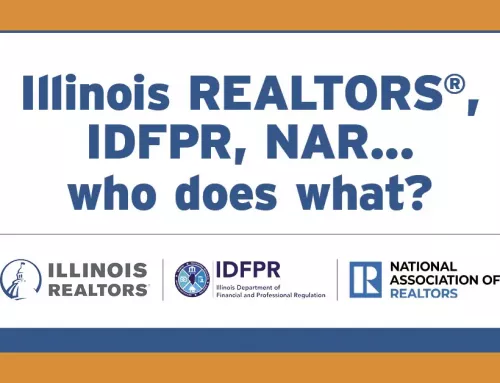As a broker, am I responsible for providing an interpreter for hearing-impaired clients at their closings?
Generally, yes. The Americans with Disabilities Act (“ADA”) has clear mandates requiring professionals (including real estate professionals) and other entities to provide effective communication to clients and customers who are deaf or hard of hearing. Declining to work with a client or customer due to an unwillingness to provide auxiliary aids or services is a potential ADA violation. The relevant sections of the ADA apply to all places of public accommodation, which include any establishment that provides products or services to the public. This has been interpreted to include offices of real estate professionals.
The ADA specifically provides that public accommodations (e.g.: real estate offices) must obtain and pay for any auxiliary aid or service that is necessary to achieve effective communication with deaf or hard of hearing individuals. The type of auxiliary aids or services that might be required will depend upon a variety of factors, including the length and complexity of the interaction. For example, complex interactions with hearing-impaired or deaf clients, such as closings or contract negotiations, are examples of situations in which interpreters would be required.
To be considered an effective accommodation, any auxiliary aid must ensure that deaf or hard of hearing clients or customers can understand and participate in transactions as if they were not deaf or hard of hearing. Because deaf and hearing-impaired individuals vary greatly in their ability to effectively communicate using sign language, or written or spoken English, providers must consider there is not a “one size fits all” solution and auxiliary aids must meet the needs of clients or customers. The rationale behind the federal law is that, unless brokers can communicate effectively with clients, there is a risk that brokers will not understand the needs of clients or customers, resulting in brokers giving incorrect or inaccurate advice, insufficient disclosures or inadequate support in negotiating transactions.
Friends and family may not provide accurate, impartial or confidential interpreting, even if they have some knowledge of sign language. The Department of Justice regulations define a qualified interpreter as, “an interpreter who is able to interpret effectively, accurately and impartially, both receptively and expressively, using any necessary specialized vocabulary.” The cost of providing a qualified interpreter cannot be passed on to clients or customers. The expense of providing sign language interpreters or other accommodations, is just part of the cost of doing business in the same way ramps, railings, disabled parking spaces or other physical accessibility features are business expenses. Brokerages may not require the deaf or hard of hearing clients or customers to bring interpreters.
However, the ADA does not require accommodation to furnish auxiliary aids or services when doing so would create an undue financial burden. The nature of the burden is measured in the context of the real estate office’s overall resources, including the resources of any parent company. Even if the cost of providing resources exceeds the fee that the deaf or hard of hearing client or customer pays for the real estate services, it may not support a finding of an undue burden. In some cases, a lack of advance notice of a need for auxiliary aids may excuse a brokerage from providing one but would not excuse the office from making its best efforts to find one. If the auxiliary aid or services is an undue burden, all available means to serve the needs of the client or customer should be provided, such as written materials, extra time or legal assistance. Brokerages should consider consulting with their accountants about potential tax credits associated with providing these accommodations.
Should REALTORS® encourage buyers to write personal letters to sellers about why they are interested in a home to stand out in competitive, multiple-offer situations?
This is not recommended for several reasons. The current low-inventory market has made buying a home more competitive than ever, and as a result, buyers are trying any way they can to get an advantage over the competition. This includes writing “love letters” to sellers to try to explain why a home is a “perfect fit” for them. Although on the surface these letters may seem harmless and only an attempt to get a seller’s ear, they can raise fair housing concerns and may even make the brokers and their clients subjects of fair housing complaints. Therefore, even though there is not a statutory provision in Illinois prohibiting use of these letters, many brokerages discourage this tactic to avoid allegations of discriminatory conduct or possible violation of fair housing laws.
The National Association of REALTORS® (NAR) has cautioned against the use of love letters because of the risks that they pose because they often “contain personal information and reveal characteristics of the buyer, such as race, religion, or familial status, which could then be used, knowingly or through unconscious bias, as an unlawful basis for a seller’s decision to accept or reject an offer.”
Rather than using the love letter as a tactic, buyer’s brokers can help their buyers prepare for the presentation of good offers that can be evaluated on objective criteria. For example, buyers can strengthen their offers by obtaining a pre-approval letter from their lender, submitting an adequate earnest money deposit and writing a solid offer with their broker’s assistance.
Sellers’ brokers can play a role in protecting their clients from the risks posed by love letters by educating them on fair housing laws and the inherent risks of considering love letters. Listing agents can help sellers understand that decisions to accept or reject offers should be made on objective criteria only. Sellers can make informed decisions to advise buyers that love letters will not be accepted as part of their offers.
Oregon recently passed a new law, becoming effective in 2022, banning the use of love letters in real estate transactions. NAR issued a statement supporting the legislation by stating that “all parties in a real estate transaction should consider only legitimate, non-discriminatory criteria when making business decisions.”
If you have buyer clients who insist on using love letters in transactions, it is wise to remove yourself from any involvement with the letters and encourage your clients to discuss the content with their own attorneys. Likewise, if sellers receive love letters, advise them to have the letters reviewed by their attorneys and remind them of the importance of making decisions based upon objective criteria. Agents can also have a policy against drafting or delivering love letters. IF this is the broker’s policy, it must be consistently applied.
Have a legal question?
Illinois REALTORS® Legal Hotline is the Designated REALTOR®/ managing broker’s go-to source for legal information.
Hours: 9 a.m. – 4 p.m. Monday – Friday
Phone: 800-952-0578
Email: [email protected]



















